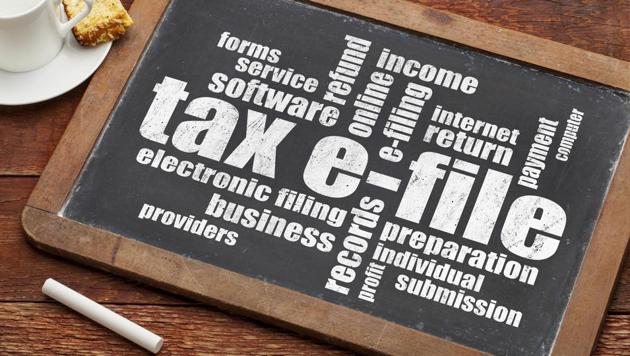Preamble: This appeared on Facebook first. Since it was not a ‘Public’ post, the link may not work for everyone. I posted it, and almost at once, was cornered by my friends for not understanding the purpose of taxation. I stopped defending my position on that post immediately after and introspected, mainly on my privilege, which blinds me to many things that matter on such issues. Later, in August 2021, I wrote about what I thought was the purpose of taxation. And then, again, I wrote about affirmative action and income tax in January 2022. That said, I am not the one to hide my positions when I was younger and perhaps less wise to things, just to prove I have always been on the right side of history. To learn and grow, to evolve and change one’s mind as one acquires knowledge and education is not a sign of weakness. So, I am letting this be as is, for my readers to get a flavour of what my mind was like back in April 2016. Interestingly, someone with similarly crazy ideas as these persuaded the Prime Minister of India to demonetise 86% of all currency in circulation overnight on what turned out to be an unplanned whim the very same year, within 7 months of this post. Thankfully, it did not go well, and further shocks to the economy through one man’s diktat were avoided in the aftermath.
Caveat: Of course, all of what I say is not worth discarding. There does indeed seem some merit in looking at income tax, how and from whom we collect it, and why we do it once again. At the same time, it might help to look at other taxes (like inheritance tax and wealth tax) and see what we can do to use this tool to make society more equitable.
All right. Enough preamble. On to the article now.

With this post, I intend to start a discussion on taxation and the right way to go about it (possibly). I do not claim to know everything there is to know about taxes, but I am keen to learn, and also share whatever I have learnt, and thought over.
Very importantly, what this discussion is NOT about (just to avoid digression):
- The current government, either in India or anywhere else.
- The previous governments, in India or anywhere.
- The morality of taxation.
- The ethics of the sovereign nation-state.
- Religion, Hindutva, Islamism, communism, nationalism, or any ism whatsoever.
- Democracy, theocracy, liberalism, conservatism, or any other system of governance.
- Corruption, sycophancy, nepotism, or any other ills of the political establishment in any country.
The following are the assumptions I shall be holding true without debate or explanation (this by no means implies that I agree with these. If you have a problem with any of these, I suggest we take our discussion to another thread):
- A sovereign nation-state is a given in the present world, and the most popular form of political organisation.
- Such a state needs funds to operate (what it uses these funds for is out of scope of this discussion).
- A state also needs to retain and protect itself by creating a system of control over the citizens/subjects.
- At the same time, the state needs to protect and encourage its industry and businesses in order to (at the very least) keep the economy healthy enough to keep collecting funds.
- For this (to make funds available, to create a smooth collection of the same possible, to walk the thin line between collection of taxes and encouraging business to make more so they can collect more, and to retain a sense of control over the calculation, collection, and expenditure of these funds), the state has the following tools: the legislature to make laws, the judiciary to interpret these in case of disputes, an armed force to enforce the said laws, and various arms of administration to maintain records, calculate payables, collect taxes, discourage, discover, and punish evasion, create expenditure budgets to maintain enough incentive to keep the economy growing, and protect its sovereignty.
Taxes have, therefore, two basic objectives:
- Create income for the state.
Create a system of control over the populace. - In this matter, the state collects taxes on everything it can get away with: income, property/wealth, expenditure, manufacturing, services, sales, interest, even inheritance…in fact, any transaction has taxability, and most states use every opportunity they can to milk this.
Tax is so important that it seems to be the only item, other than war & defence, that seems to be worth discussing when speaking about the survival of any civilisation even in our history books. Every lasting empire lasted in great part because of the smooth functioning of the tax system and the army. And though I cannot claim that every single empire falling was due to bad tax collection or an inefficient army, I think it is close enough to be a thumb rule.
I have been thinking and reading about this for some time now, and thought I’d put my thoughts about how a state could ideally meet all the requirements of taxation with the minimum fuss, leakage, expenditure, or infrastructure (the last mainly due to technology now), and still be effective.
So, here goes (after a couple of hundred words in the preamble…purely because all conversation on social media seems to be hijacked and diverted nowadays):
My contention is money is of NO VALUE until it is spent on acquiring some goods or services that the owner of the money wants.
This means that it does not matter how much I earn on a regular basis, how I earn it, where I save it, how much of it I save, how much I keep and how much I give away and to whom, or anything else I do with the money except actually SPEND it.
This is independent of whether my income is from inheritance or rent, from manual labour or intellectual exertions, or whether I have any wealth (as opposed to income) which makes me the said money. It does not matter if I bank it or stash it in my mattress, whether use it to acquire credit or to generate further income. It really does not matter what I do UNTIL I BUY SOMETHING. The money really is of use only when it is used in a transaction as an exchange mechanism for the acquisition of things I want.
So, if the state were to tax ONLY EXPENDITURE, it would:
1. Be able to widen the net to a very large extent. In fact, every individual would come under the net.
2. Be able to do away with paper money, and switch entirely to electronic transactions (today’s cell phone and Aadhaar penetrations allow this). This brings me to another of my pet theories: ABOLITION OF PAPER-BASED CURRENCY would not just be good for the world, but is eventually inevitable. Might as well get with the program.
3. Still track every paisa, and have even more supervision and control on the movement of funds than today’s system.
4. Simplify the process and create a fantastic business atmosphere for various corporates and commercial enterprises to open up, operate, and prosper.
5. Make it easy for anyone to calculate their liability (thus perhaps putting many cas out of business!).
6. Make collection (for the administration) and compliance (for the citizens) easy (even automated).
In addition, the state could have a flexible ENTRY TAX (like customs duty) for items entering the sovereign territory to even out global inequities, a heavy-duty INHERITANCE TAX to even out the domestic social inequities, and inflation-linked, fairly priced, and clearly transparent GOVERNMENT FEES for any transaction with the government (like in Dubai, where the government itself takes such high fees and fines, and creates a smooth and legal path for the common person, that corruption is unheard of in normal daily activity). This would ensure a smooth, transparent, and calculable flow to the government from which it may run its affairs.
Note: you can still use subsidies and grants, reservations and quotas, and measured infusion of funds into the right government programs to nullify any socio-economic inequality that may result from a flat tax regime.
Now, if we could convert the EXPENDITURE TAX into a simple TRANSACTION TAX, it’d become even easier to calculate, collect, and monitor.
As for how can we ensure that the source of income/wealth has been clean, the answer is we won’t have to. If we digitise the economy and simplify taxation to a simple transaction tax, it’ll be really very difficult to conduct any business or even a transaction without creating a record.
Some questions can be raised. Let us start with the easiest to answer: how will the various cities, towns, counties/districts, and states share this if each of them is not collecting their own taxes? Frankly, we have already seen such power and funds-sharing agreements in most stable nation-states, and I do not see this as a big issue at all.
Now, to the BIGGIE: privacy and abuse. If we convert all transactions into digital ones, and start tracking these, we are in danger of this system being misused and abused by tyrannical regimes and less-than-honest governments (which are, let’s be real, every government you can think of!). But, once again, I say that not only would the advantages outweigh the disadvantages (as has been seen in so many instances where the government or even private organisations have our personal and private data, and the world still, more or less, functions sanely), but also that it is inevitable and would happen anyway in the future. Would it not be better to ourselves start working towards it, by creating safeguards, having built-in protections and monitoring, and working towards it through trial & error on our own schedule, instead of being led, kicking and screaming, into the technological future? That someone will misuse or abuse the freedoms we, citizens/buyers/users, surrender to the government/trader/service provider has been a concern as old as civilisation itself, and the only “safe” way out is to not avoid discussing it, so that safeguards could be built (and continuously tweaked, because no system is fool-proof) and WE could control its pace rather than be faced with a fait accompli at some indefinite future…we have done it for so many things already, whether it is weapons in the hands of a few uniformed soldiers to the exclusion of others (USA is an exception), or air travel, or credit cards, or free email…there are so many instances of us trading one freedom (and/or privacy) for some convenience that it really shouldn’t be that difficult to find a solution to this.
Lastly, the BIGGEST question: who will bell the cat? Would the legislature, full of politicians of dubious backgrounds and businesses, be capable of creating such a regime? Would the judiciary, the armed forces, and the administration be prepared to accept it if such a change is made? Would the various interests and lobbies inside our political system and economy allow this to happen? To this, frankly, I know the answer. And it is a resounding NO.
But it doesn’t cost to dream.
What do you think?


















